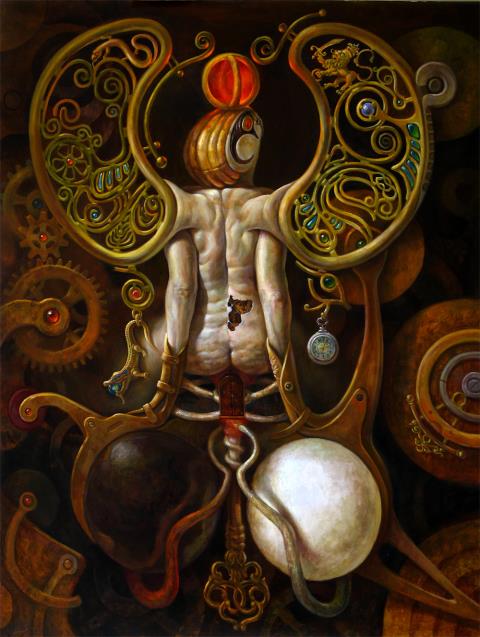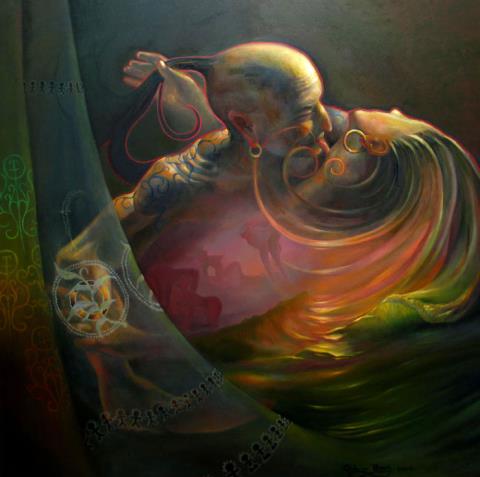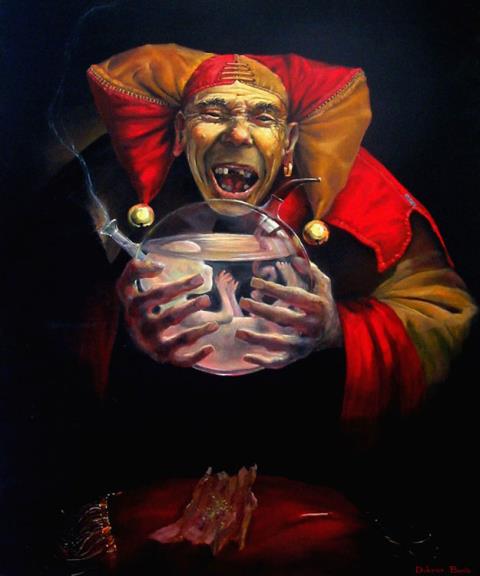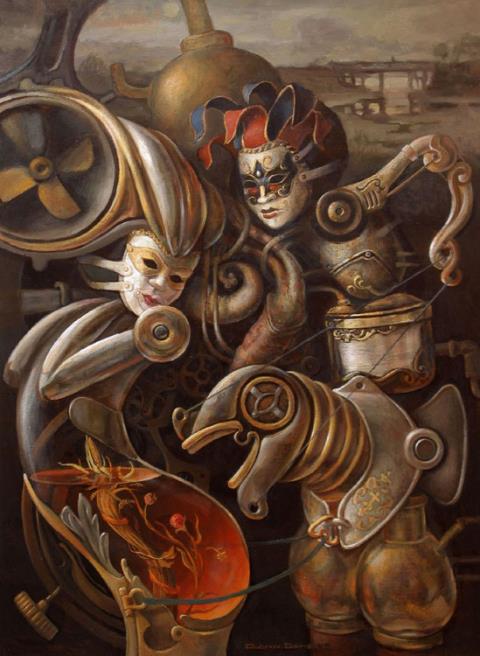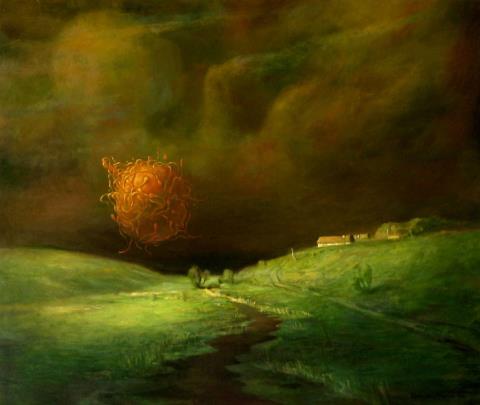(Part of this was written before)
Gotta love a day when what should be the most exciting line in the agenda actually turns out to be the most blah. So, I'll refrain from commenting on the Spain - Portugal match other than that it was about as exciting as a boxful of doilies. The World Cup is a no-no for me here - why comment on something you'll joyously forget the next day? Just a shame some class teams - and if class is what we're after, Cameroon, Germany, Argentina and Slovakia probably showed the bulk of it when at their best - went tally-ho and buh-bye, off to another ball game. The instant-replay/ultrasensitive-camera/homing-device-in-ball/laser-implant-into-eye-of-referee controversy is not even worth touching on. So, that's about it for the World Cup. I mean, North Korea's out (coming to a "training camp" near you, comrades!), so why get too excited? The rightful champion is disgracefully gone and the capitalist horde of the ever-cursed Pig-Lord of the Fifty Stars has been named the winner even before the kickoff to game one. I'm tellin' ya, these bourgeois dogs will stop at nothing.
Warsaw, where I stopped by a few days ago, gave me a lil' internship in the Embassy of Venezuela, a remote chance of being accepted into the Yucatan program in Mexico, and above all, a chance to meet up with a friend of mine who I'd never talked to before quite so freely. "Intellectually inspirational," said she as I walked her to the train, missing my last bus and not giving a damn. "Right back at you," said I. "Thank you," said she. Until I see some results and set about inspiring myself and others to ACTION, not to thinking, I ain't convinced. But I
have come a long way from the bumbling blob of hypersensitive thick tar I was a year and a half ago. Still, I need
change, and not only change in my life, but to
enforce change where it needs enforcing, be one of those in the front line. Not the guy who puffs his chest out to pin the medal on better (vanity destroys, and baseless vanity is pitiful), but the guy who actually works in a team to take someone out of the dark hole he's in.
But where's my practice? I have no practice. I've never saved a life, never pulled someone out of the gaping maw they were falling into, never changed anyone's walk of life. It's just talk, and chattering, and bullshit. And talking about acting. And talking about talking about acting. How about a "DO", huh? How about a "DO"? It ain't gonna come floating down river for you to collect. The friend I met up with in Warsaw had been to the favelas in Rio, and she said the poverty here and the poverty there are worlds apart. Here, we lack programs that could
really make a difference, take people off the streets permanently, give them just enough cheese to want more but just enough hurdles to know that it ain't gonna be easy to get from the bench back to real life. There, the favelados do what they can, but try as they might, the putrid system puts the hurdles there itself - stay inside, poor bastards, we don't want you peons moving. Maybe.
One thing is for sure - the dirt-splattered, weathered and beaten-down dregs everyone in Poland sometimes comes across (the older generation, not the current human wastes of are that go around robbing people at will) rarely elicit a second glance, or a bit of attention. Do they deserve it? I don't know. To each his own answer: would you grace a half-naked, old and broken drunkard with more than a fleeting glance? The last time I did - a few days ago - I stopped and took a few minutes to talk to a man with drooping skin and dirt smeared all around hands and fingernails, a man claiming to have been a sailor who did 24 years of jail time for beating up his bosun and a couple of others - which the faded Bruce Lee tats seemed to at least partially confirm. Toothless, he told me his plight: 65 gr for a beer, and starting from the 5th (which is when he gets his pension), he's off to rehab. Said it with real tears in his eyes, too, as he did when telling of his sons - two out of three supposedly dead. On the rehab front, no chance. I have no naivete to abuse there, he's not going anywhere voluntarily. Might have lied about the rest too. But who knows?
I gave him 70 gr.
Wrong? Right? Either way, it won't change a thing. And my talking to him doesn't make me any better than countless others who wouldn't even spare a second. It doesn't make me any better, because it's really just a formality. Nothing comes of it, like tossing a beggar a dime just to quash and quell your pricked guilty conscience and tickle your sense of righteousness - when in reality it changes nothing and you'll see the same beggar reeking just as bad and needing just as bad the next day until the day he dies or someone shakes him and takes him off the street. And someday I'd like to be able to say that when I'm stopped and talked to by a person of the category of the Anonymous Seaman - lower than low - something might come of it.
Parting thought: take a look at the teenage plastic princesses that abound on these streets and others. Or better yet - since this is a backwards town and always will be - imagine yourself in NY, LA, Boston, London, Paris, or the metropolis of your choice. And the slick suits that stride through the streets with confidence oozing corporate success. Would
they want to admit the existence of a world unlike their own, a world of dirt and drugs and destitution? And starvation and wife-beating and hitting the bottle time and again? Would they acknowledge any ugliness in this world? Or is it easier to dig a trench in your pristine bubble and pretend it doesn't concern you?
Yeah, trench wins.
In Warsaw, at the station, I saw my first methhead. Up close, the bruises and open wounds on her face were grotesquely covered by a thick layer of correction fluid. Her eyes were dead, she was a shuffling zombie, asking for money with hand cupped, head down and gait somnambulant, despite a surprisingly (apparently) unravaged body - a meth trainee, perhaps. Now the question is - does she exist? Can she be helped? Or is she just a transparent ghost sleepwalking through a train station that's full and vibrant by day, but horrendously empty by night, the eternal night that never gives way to day in her little life of horrors?





